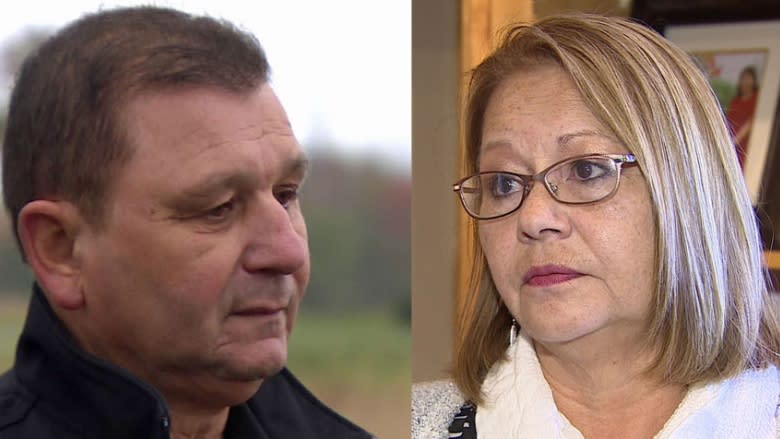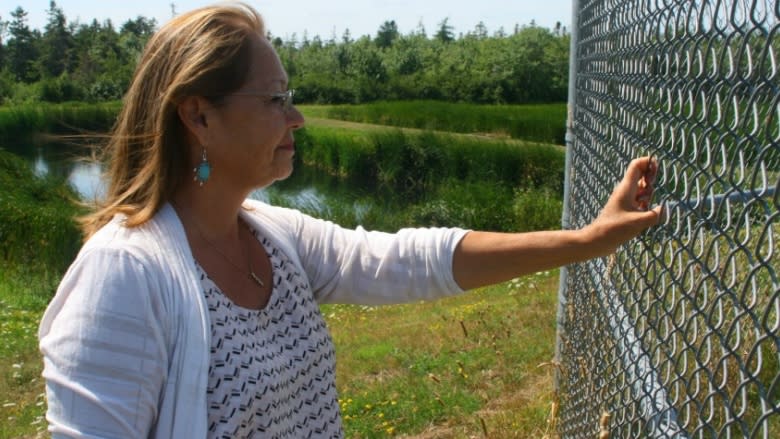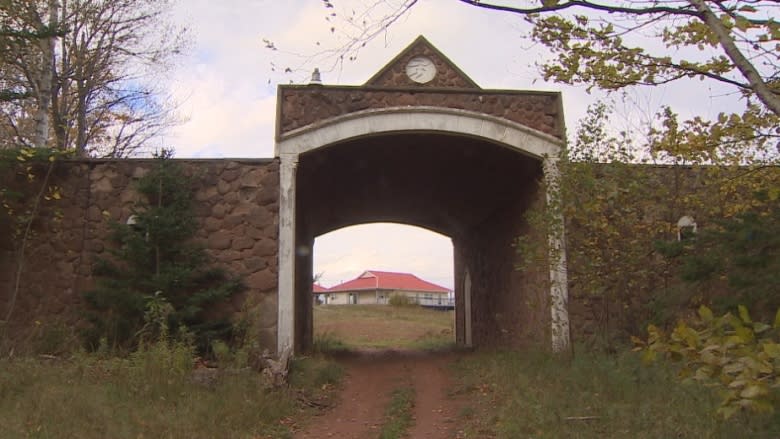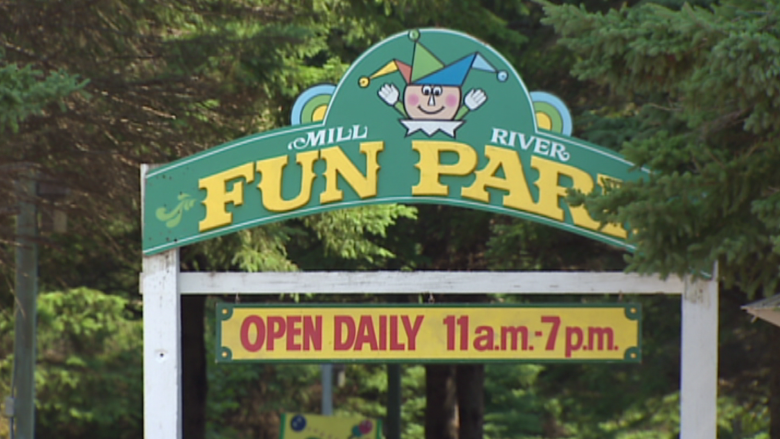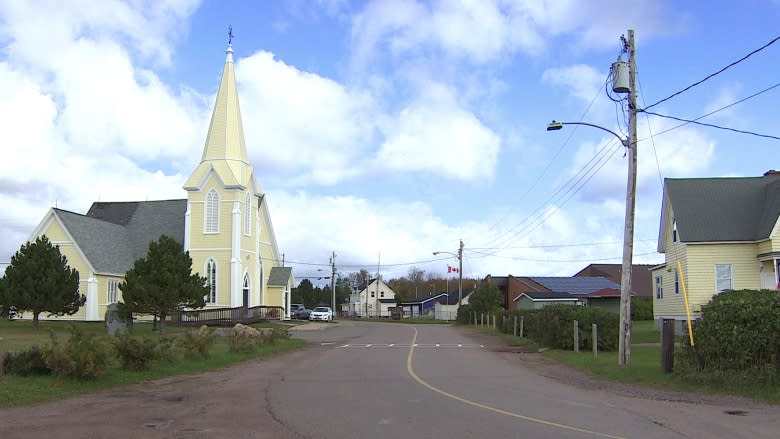'It's all Mi'kmaq land': Why First Nations claim P.E.I. as their own
P.E.I. Mi'kmaq people "make no apologies" for asserting their right to P.E.I.'s Crown lands, and there's really one simple reason: because they were here first.
There are two First Nations with lands many of the Island's Mi'kmaq people call home: Lennox Island First Nation near Tyne Valley, about 540 hectares and home to more about 400 people, and the offshoot Abegweit First Nation in Scotchfort, Rocky Point and Morell, about 200 hectares and home to 213 people.
The Mi'kmaq have been here for at least 10,000 years, according to the Mi'kmaq Confederacy. Although the French and English settlers arrived in the early 1700s and engaged the Mi'kmaq in peace and friendship treaties, they maintain they never bargained away the land or their rights to it.
"We never ceded any of P.E.I to anyone, it's all Mi'kmaq land," asserted Brian Francis, who's been chief of the Abegweit band for the last decade.
"It's kind of like inviting your in-laws in, or your neighbours, into your home, then they take over the household," said Matilda Ramjattan, chief of Lennox Island.
"We, the Mi'kmaq, have staked claim to all of Prince Edward Island, and we make no apologies for it," she added.
'Meaningful consultation'
Since the Mi'kmaq Confederacy — which represents both Lennox Island and Abegweit First Nations — was formed in 2002, the chiefs say they've been working on building a relationship with the provincial government that will see Mi'kmaq residents more fully enjoy their rights.
"The government must consult First Nations on all decisions or actions that might affect adversely on asserted aboriginal or treaty rights, and that includes the conveyance of crown lands," said Francis.
That duty to consult stems from Section 35 of Canada's 1982 Constitution, and has been affirmed by several court cases.
"The Government of Canada has a duty to consult, and where appropriate, accommodate Aboriginal groups when it considers conduct that might adversely impact potential or established Aboriginal or treaty rights," according to Indigenous and Northern Affairs Canada's website.
The Confederacy has signed several federal-provincial agreements including a consultation agreement in 2012 that lays out a process under which governments agree to provide the Mi'kmaq with all relevant information about a decision or activity that may affect them, and allows the bands to assess it and respond to any concerns. It does not lay out any dispute mechanism, however.
The chiefs reveal that under this process, they annually receive hundreds of notifications from the province of small changes to crown land — like construction work on roads — most of them unimportant to the Mi'kmaq.
Crown land is land owned by the federal or provincial governments — that totals about seven and a half per cent of the Island's approximately 5,660 square kilometres, according to the province.
"So you can see, when there's a conveyance of a huge chunk … we have to be very aware of and take that seriously," said Francis.
'Not about money'
If the bands have no use for a particular piece of crown land government is disposing of or changing, they may agree to trade for another piece of property, leverage employment for their band members on projects, or something else — including money.
"But consultation is not about money," maintained Francis. "Some consultation matters might result in funding opportunities, consultation is about rights. It's about preserving our culture, our land and resources. And it also helps us generate opportunities."
The bands have received such accommodation, once — for the Coast Guard property on the Charlottetown waterfront, known as Queen's Wharf.
Then, a provincial spokesperson confirmed, the province and Confederacy signed a five-year economic development agreement for 2013 to 2017 that will provide the Confederacy with an undisclosed portion of money from the sale of the Queen's Wharf property to be put into an escrow account for use by the Mi'kmaq for future economic development projects. That hasn't happened yet — the province still owns Queen's Wharf and has been seeking development plans for it since 2014.
The province also gave the Confederacy an annual grant to assist with economic development initiatives for the five-year period, and seconded an economic development officer to work with the Confederacy.
It also promised "a property to be conveyed to MCPEI or an entity identified by the First Nations in the Bonshaw area for economic development purposes," an email from the province this week said.
Fairyland is part of the deal
That land, Francis revealed Friday, is the former Fairyland fun park, later called Encounter Creek, which the province bought to build the so-called Plan B highway through the Bonshaw area.
"We don't have a plan for it," said Francis, noting the deed for the 14-hectare property is not yet in the Confederacy's hands. "We are looking at options."
The above details flesh out what had been a very brief and little-reported description of the agreement contained in a government news release back in 2014, which referred only to a "strategically-located portion of crown land."
Although the Confederacy also asserted its rights to the lands at the former federal experimental farm in the middle of Charlottetown back in 2009, the government later clawed back its designation of the land as surplus. The chiefs still assert their right to consultation and accommodation on that valuable property.
The Confederacy is also in the midst of negotiations over its rights to several P.E.I. lighthouses, Francis confirms.
Mill River sale
In January, the province announced it was selling a golf course, fun park, resort and campground at Mill River to Blue Jays founder Don MacDougall. It's crown land, a significant chunk, and although the Confederacy said it was notified and then wrote back to the province outlining its objections, it says none of the agreed-upon meaningful consultation happened.
"They didn't give us anything," said Francis. "We voiced our objections, and we got nothing.… That's not meaningfully accommodating."
"That's very disrespectful, and we're not standing for it," added Ramjattan.
The Confederacy says the Mill River land is "traditionally and culturally significant to the Mi'kmaq." In fact, the chiefs agree all of P.E.I. is traditionally and culturally significant — this piece is not more special than others for any reason, since the Mi'kmaq used the entire Island.
The Mill River matter is now before the courts — the Confederacy filed a court challenge over the pending sale February 8.
However, the province did send this response to the Confederacy's criticism to CBC via email: "P.E.I. is of the view that it conducts fair and reasonable consultation with MCPEI on matters where the duty to consult is triggered," and will continue to do so.
'Most vital tool'
The tenuous economic and cultural viability of the Mi'kmaq people, battered by the legacy of discrimination and residential schools, hangs on these rights, the chiefs said — not new rights, but recently-asserted.
"Our attitude is, how can we bring forward our First Nation people and benefit them with whatever land we have left here?" Ramjattan said.
Rights-based assertions are "the most vital tool we have as First Nations to advance long-term outcomes for our disadvantaged communities," maintained Francis.
Ongoing education needed
The chiefs believe most Islanders, including many provincial bureaucrats and politicians, don't understand their rights to P.E.I.'s land.
"There's really no excuse, if they don't understand their obligations, at this point," said Francis.
The province asserts it does provide internal training and also partners with the Mi'kmaq to provide staff training on the duty to consult, and provide government staff access to aboriginal law expertise.
One of the final lines in the Provincial Policy on Consultation with the Mi'kmaq is: "To date, aboriginal rights or title have not been tested in Prince Edward Island."
With the Mill River court challenge, that may be about to change.
"We have stood up and we are going to continue to go forward in this vein," Ramjattan concluded.
- MORE P.E.I. NEWS I Canadian environment groups want webinar pulled from classrooms over GMO foods
- MORE P.E.I. NEWS I Ontario community takes on challenge to walk distance to Province House

